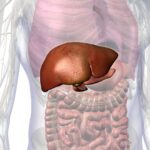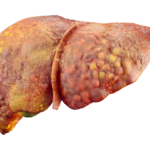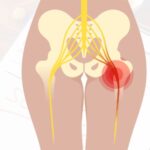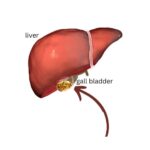Understanding Gastritis: Causes, Symptoms, and Treatments
Gastritis is a common condition that affects the stomach lining, leading to discomfort and various digestive issues. While it may seem like just a minor inconvenience, untreated gastritis can lead to more severe health problems. In this blog, we’ll explore what gastritis is, its causes, symptoms, and the available treatments.
What is Gastritis?
Gastritis is the inflammation of the stomach lining, also known as the gastric mucosa. This lining contains cells that produce acid and enzymes necessary for digestion, as well as mucus that protects the stomach from the acidic environment. When this lining becomes inflamed, it can cause discomfort and other digestive symptoms.

Causes of Gastritis
Several factors can contribute to the development of gastritis, including:
1. Infection
The most common cause of gastritis is infection by Helicobacter pylori (H. pylori) bacteria. This bacterium can damage the protective lining of the stomach, leading to inflammation.
2. Chronic Use of NSAIDs
Nonsteroidal anti-inflammatory drugs (NSAIDs) such as ibuprofen and aspirin can irritate the stomach lining, especially when taken frequently or in high doses.
3. Excessive Alcohol Consumption
Alcohol can erode the stomach lining, leading to inflammation and making the stomach more vulnerable to digestive acids.
4. Stress
Severe physical stress, such as surgery, injury, or burns, can cause acute gastritis. Emotional stress can also exacerbate symptoms in people with existing gastritis.
5. Autoimmune Disorders
In some cases, the body’s immune system can mistakenly attack the cells of the stomach lining, causing chronic gastritis.
6. Other Factors
Other factors that can contribute to gastritis include bile reflux, certain diseases and conditions such as Crohn’s disease, and the consumption of spicy foods.
Symptoms of Gastritis
The symptoms of gastritis can vary depending on the severity and cause. Common symptoms include:
- Abdominal Pain: A burning or gnawing pain in the upper abdomen.
- Nausea and Vomiting: Feeling sick to the stomach, which may lead to vomiting.
- Bloating: A feeling of fullness or swelling in the abdomen.
- Loss of Appetite: A reduced desire to eat.
- Indigestion: Discomfort or pain in the stomach associated with difficulty digesting food.
- Hiccups and Belching: Frequent hiccups or belching after eating.
In severe cases, gastritis can lead to complications such as stomach ulcers, bleeding, or an increased risk of stomach cancer.
Diagnosis of Gastritis
To diagnose gastritis, a healthcare provider may perform several tests, including:
- Endoscopy: A thin, flexible tube with a camera is inserted into the stomach to look for signs of inflammation.
- Biopsy: A small sample of stomach tissue may be taken during an endoscopy for further examination.
- Blood Tests: These can check for H. pylori infection or anemia.
- Stool Test: This can detect the presence of blood in the stool, indicating bleeding in the stomach.
- Breath Test: A special breath test can identify H. pylori infection.
Treatment of Gastritis
The treatment for gastritis depends on its cause and severity. Common treatments include:
15 Homoeopethy Medicine For Treatment of Gastritis
- Homeopathy is a system of alternative medicine based on the principle of “like cures like,” where substances that cause symptoms in a healthy person can be used in small amounts to treat similar symptoms in a sick person. It’s important to consult with a qualified homeopath or healthcare professional before starting any treatment. Here are 15 homeopathic remedies commonly used for gastritis:
- Nux Vomica:
- Indications: Gastritis due to overindulgence in food, alcohol, or coffee. Symptoms include heartburn, nausea, and vomiting, especially in the morning.
- Dosage: 30C or as prescribed by a homeopath.
- Arsenicum Album:
- Indications: Burning pain in the stomach, especially at night, with a desire for small sips of water. Symptoms are often worse after eating cold food or drinks.
- Dosage: 30C or as prescribed by a homeopath.
- Carbo Vegetabilis:
- Indications: Bloating, belching, and a feeling of heaviness in the stomach. Symptoms improve with burping and passing gas.
- Dosage: 30C or as prescribed by a homeopath.
- Pulsatilla:
- Indications: Gastritis with mild, gentle, and tearful disposition. Symptoms worsen after eating rich, fatty foods and improve with fresh air.
- Dosage: 30C or as prescribed by a homeopath.
- Bryonia:
- Indications: Acute gastritis with intense, sharp pain that worsens with movement and pressure. Relief is found with rest and lying still.
- Dosage: 30C or as prescribed by a homeopath.
- Natrum Muriaticum:
- Indications: Chronic gastritis with a craving for salty foods and a sensation of a lump in the throat. Symptoms may be triggered by grief or emotional stress.
- Dosage: 30C or as prescribed by a homeopath.
- Lycopodium:
- Indications: Bloating, flatulence, and a feeling of fullness after small meals. Symptoms are worse in the late afternoon and evening.
- Dosage: 30C or as prescribed by a homeopath.
- Antimonium Crudum:
- Indications: Gastritis with a thick, white-coated tongue and a craving for acidic and pickled foods. Symptoms worsen with overeating.
- Dosage: 30C or as prescribed by a homeopath.
- Ipecacuanha:
- Indications: Persistent nausea and vomiting with a clean tongue. Symptoms do not improve with vomiting.
- Dosage: 30C or as prescribed by a homeopath.
- Phosphorus:
- Indications: Burning pain in the stomach, relieved by cold drinks and worsened by warm foods and drinks. There is often a desire for cold, carbonated drinks.
- Dosage: 30C or as prescribed by a homeopath.
- Kali Bichromicum:
- Indications: Gastritis with a sensation of heaviness and burning in the stomach. Symptoms include vomiting of thick, stringy mucus.
- Dosage: 30C or as prescribed by a homeopath.
- Argentum Nitricum:
- Indications: Gastritis with a lot of gas and belching, especially after eating sweets. Symptoms may include a craving for sweets and salty foods.
- Dosage: 30C or as prescribed by a homeopath.
- Belladonna:
- Indications: Acute gastritis with sudden, intense pain, and sensitivity to touch. Symptoms are worse with jarring movements.
- Dosage: 30C or as prescribed by a homeopath.
- Chamomilla:
- Indications: Gastritis with a burning sensation in the stomach and irritability. Symptoms improve with warm drinks.
- Dosage: 30C or as prescribed by a homeopath.
- China Officinalis:
- Indications: Gastritis with bloating, belching, and a feeling of fullness even after light meals. Symptoms often improve with motion and hard pressure.
- Dosage: 30C or as prescribed by a homeopath.
- General Tips for Using Homeopathic Remedies:
- Consult a Professional: Always seek advice from a qualified homeopath to ensure the correct remedy and dosage.
- Follow Dosage Instructions: Homeopathic remedies are highly individualized; follow the prescribed dosage.
- Observe Symptoms: Monitor your symptoms and report any changes to your homeopath for potential adjustments in treatment.
- Avoid Strong Flavors: Strong flavors like mint, coffee, or alcohol can interfere with the effectiveness of homeopathic remedies.
- Homeopathy can offer relief for gastritis, but it is essential to approach treatment under professional guidance for the best results.
- General Tips for Using Homeopathic Remedies:
- Consult a Professional: Always seek advice from a qualified homeopath to ensure the correct remedy and dosage.
- Follow Dosage Instructions: Homeopathic remedies are highly individualized; follow the prescribed dosage.
- Observe Symptoms: Monitor your symptoms and report any changes to your homeopath for potential adjustments in treatment.
- Avoid Strong Flavors: Strong flavors like mint, coffee, or alcohol can interfere with the effectiveness of homeopathic remedies.
- Homeopathy can offer relief for gastritis, but it is essential to approach treatment under professional guidance for the best results.
2. Lifestyle Changes
- Dietary Adjustments: Avoiding spicy, acidic, or fried foods that can irritate the stomach.
- Reducing Alcohol Intake: Limiting or avoiding alcohol to prevent further irritation.
- Avoiding NSAIDs: Using alternative pain relievers that are gentler on the stomach.
- Stress Management: Practicing relaxation techniques such as meditation, yoga, or deep breathing exercises.
3. Home Remedies
- Ginger: Known for its anti-inflammatory properties, ginger can help soothe the stomach.
- Probiotics: These can help restore the balance of good bacteria in the gut and support digestion.
- Chamomile Tea: This can help reduce inflammation and promote relaxation.
Preventing Gastritis
While not all cases of gastritis can be prevented, certain measures can reduce the risk:
- Maintain Good Hygiene: Proper handwashing and food safety practices to avoid H. pylori infection.
- Limit NSAID Use: Use the lowest effective dose and take with food.
- Healthy Diet: Eat a balanced diet with plenty of fruits, vegetables, and whole grains.
- Moderate Alcohol Consumption: Limit alcohol intake to prevent stomach irritation.
- Manage Stress: Incorporate stress-reducing activities into your daily routine.
Conclusion
Gastritis is a condition that can cause significant discomfort and lead to more serious health issues if left untreated. Understanding its causes, symptoms, and treatments can help manage and prevent this condition. If you experience persistent symptoms of gastritis, it’s important to seek medical advice for proper diagnosis and treatment.
By making lifestyle changes and following your healthcare provider’s recommendations, you can manage gastritis effectively and improve your quality of life.
























































































Лучшие базы для Xrumer и GSA Search Engine Ranker по самым лучшим ценам
https://dseo24.monster
Онлайн магазин баз для Xrumer и GSA лучшие цены
That is really attention-grabbing, You are a very skilled blogger. I have joined your rss feed and look forward to seeking more of your wonderful post. Additionally, I have shared your website in my social networks!
Hello, Neat post. There’s a problem with your web site in web explorer, would test thisK IE nonetheless is the market chief and a huge component to other folks will leave out your great writing because of this problem.